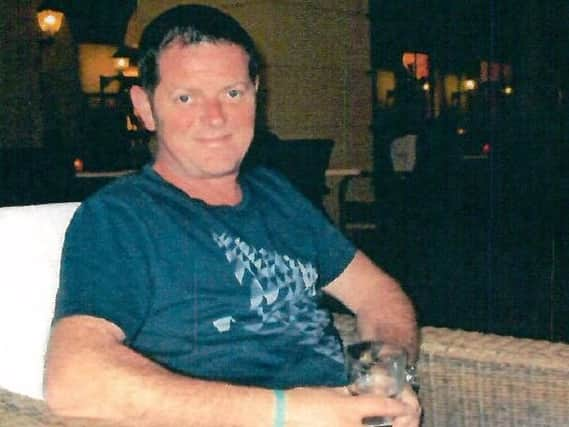Dad-of-two died after medics were "defeated" by his condition


The family of Tim Hancock, 48, have said they hope lessons have been learnt following his death of a brain haemorrhage at Leeds General Infirmary in November 2016.
Wakefield Coroner's Court heard that over the previous 12 months, Mr Hancock, underwent multiple tests as doctors struggled to get to the bottom of symptoms including fatigue, night sweats and a swollen ankle.
Advertisement
Hide AdAdvertisement
Hide AdOn November 17, 2016, Mr Hancock, a kitchen fitter of Sharlston Common, Wakefield, suffered a heart attack and was rushed to hospital for emergency surgery.
The inquest heard that his wife Karen, 47, wanted to know why he was given the blood-thinning drug alteplase as part of a medical trial in the days that followed.
Coroner Kevin McLoughlin said: "The method of obtaining consent merits review, in my judgement."
But he found that, on the balance of probabilities, the drug did not have more than a minimal contribution to Mr Hancock's death.
Advertisement
Hide AdAdvertisement
Hide AdThe inquest heard that Mr Hancock was found to have had endocarditis, a rare and potential-fatal heart condition.
It could have been detected if blood cultures were taken in the summer before he died. The inquest heard this may have been a "missed opportunity".
But the coroner said there had been no shortage of effort on the part of the medics trying to find out what was wrong with Mr Hancock.
Mr McLoughlin said: "In retrospect, his challenging condition defeated them by virtue of its complexity."
Advertisement
Hide AdAdvertisement
Hide AdIn a statement read out by their solicitor Rebecca Haigh, of law firm Irwin Mitchell, Mr Hancock's family said: "The whole family remains devastated by Tim's death.
"The family accept the findings of the inquest today and Irwin Mitchell will continue to work with them to ensure that the lessons that have been identified are learnt so that no family has to go through what they have."
A verdict of natural causes was recorded.